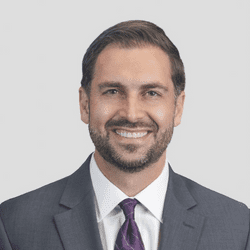Wealthtender is a trusted, independent financial directory and educational resource governed by our strict Editorial Policy, Integrity Standards, and Terms of Use. While we receive compensation from featured professionals (a natural conflict of interest), we always operate with integrity and transparency to earn your trust. Wealthtender is not a client of these providers. ➡️ Find a Local Advisor | 🎯 Find a Specialist Advisor

Are you a Christian interested in aligning your investments with your religious values?
A style of faith-based investing, referred to as Biblically Responsible Investing (BRI), offers Christians the opportunity to allocate their savings to companies and investment products screened for their commitment to upholding Christian values.
What is Biblically Responsible Investing?
According to Pax Financial Group, Biblically Responsible Investing (or Biblically Inspired Investing):
- Is a branch of faith-based investing. In faith-based investing, you invest in accordance with your religious beliefs. For Biblically inspired investors, the faith in question is Christianity and the guide is the Christian Bible.
- Avoids companies with any degree of participation in activities that don’t align with Biblical values. If a company spends time and money on an activist agenda that is not in accord with Biblical values, it doesn’t belong in a Biblically inspired portfolio.
You’ll likely find dozens of Christian financial advisors in your community well-suited to help you reach your money goals with a personalized plan. But it may be more difficult to find a Christian advisor with the training, resources, and devotion to building portfolios that meet rigorous BRI screens and standards.
Fortunately, many financial advisors offer virtual services so you can meet online no matter where you (or they) live. This means you can choose to hire a financial advisor who lives hundreds of miles away if you decide their knowledge about Biblically Responsible Investing could help you achieve outcomes fully aligned with your Christian values.
👨💻 Smart Money Insights for BRI Investors
This page is organized into sections to help you quickly find the information you need and get answers to your questions:
- Q&A with Financial Advisors Specializing in Biblically Responsible Investing (BRI)
- Get Answers to Your Questions About Biblically Responsible Investing (BRI)
- Browse Related Articles
Get to Know:
✅ Darryl Lyons, CFP®, ChFC®, BFA, AIF | ✅ Douglas Boring, CFP®, CKA®
– Financial Advisors Specializing in Biblically Responsible Investing (BRI) –
Three Questions with Darryl Lyons
We asked San Antonio-based financial advisor and BRI specialist Darryl Lyons to answer three questions to help investors learn more about investing with Biblically Responsible Investing principles.
Q: When you meet Christians unfamiliar with Biblically Responsible Investing, what is a common question you hear from them about BRI investing, and how do you respond?
Darryl: Some people are concerned about performance, and rightfully so. There has been a lot of research on this topic recently. Much of that research identified that there hadn’t been a drop-off in performance when screening for values. In fact, you could assume that you are lowering portfolio risk by avoiding companies who violate human rights, who promote and sell pornography, or simply use their profits for political causes.
Q: Since you began managing portfolios with BRI principles, has it become easier or more challenging to research and find investments that meet your expectations? How has your investing approach evolved as a result?
Darryl: As advisors, we rely on third-party managers and research tools to screen out companies. We have found that many of these tools are adapting to information. The consumer is the best source of this information.
Get to Know Darryl:
View Darryl’s profile page on Wealthtender or visit his website to learn more.
Are you a financial advisor who specializes in BRI?
✅ Get added as a BRI specialist in our next monthly update (Subject to availability and qualification criteria.)
✅ Sign up today and join financial advisors attracting their ideal clients on Wealthtender
✅ Or request more information by email:
For example, an investor may identify a company with a record of misbehaving that has snuck through the screens. This information is vital because it tells the systems how to modify algorithms so that it doesn’t happen again.
Now the systems are getting good. Technology has made this faith-based trend a reality and will only get better.
Q: For investors interested in transitioning an existing portfolio of investments to a BRI portfolio, how do you suggest they proceed to ensure a smooth and tax-efficient transition?
Darryl: The good news is that it can be done. One thing that we can do is to honor a family’s capital gains budget. For example, if you tell us we are willing to accept a $20,000 capital gain each year over the next three years, we will manage within our budget. At the end of the three years, we can be fully invested in a BRI portfolio. Of course, as advisors, we can customize this approach to each family situation.
🎙️Podcast Alert: Listen to Darryl Lyons on the Retire in Texas Podcast Discussing How Biblically Responsible Investing Works
Subscribe to the Retire in Texas Podcast: Apple | Spotify | Google | iHeart Radio | Website | Wealthtender Profile
🙋♀️ Have Questions About Biblically Responsible Investing (BRI)?
📰 Browse Related Articles
Are you ready to enjoy life more with less money stress?
Sign up to receive weekly insights from Wealthtender with useful money tips and fresh ideas to help you achieve your financial goals.
About the Author

Brian Thorp
Founder and CEO, Wealthtender
Brian and his wife live in Texas, enjoying the diversity of Houston and the vibrancy of Austin.
With over 25 years in the financial services industry, Brian is applying his experience and passion at Wealthtender to help more people enjoy life with less money stress.
Wealthtender is a trusted, independent financial directory and educational resource governed by our strict Editorial Policy, Integrity Standards, and Terms of Use. While we receive compensation from featured professionals (a natural conflict of interest), we always operate with integrity and transparency to earn your trust. Wealthtender is not a client of these providers. ➡️ Find a Local Advisor | 🎯 Find a Specialist Advisor













